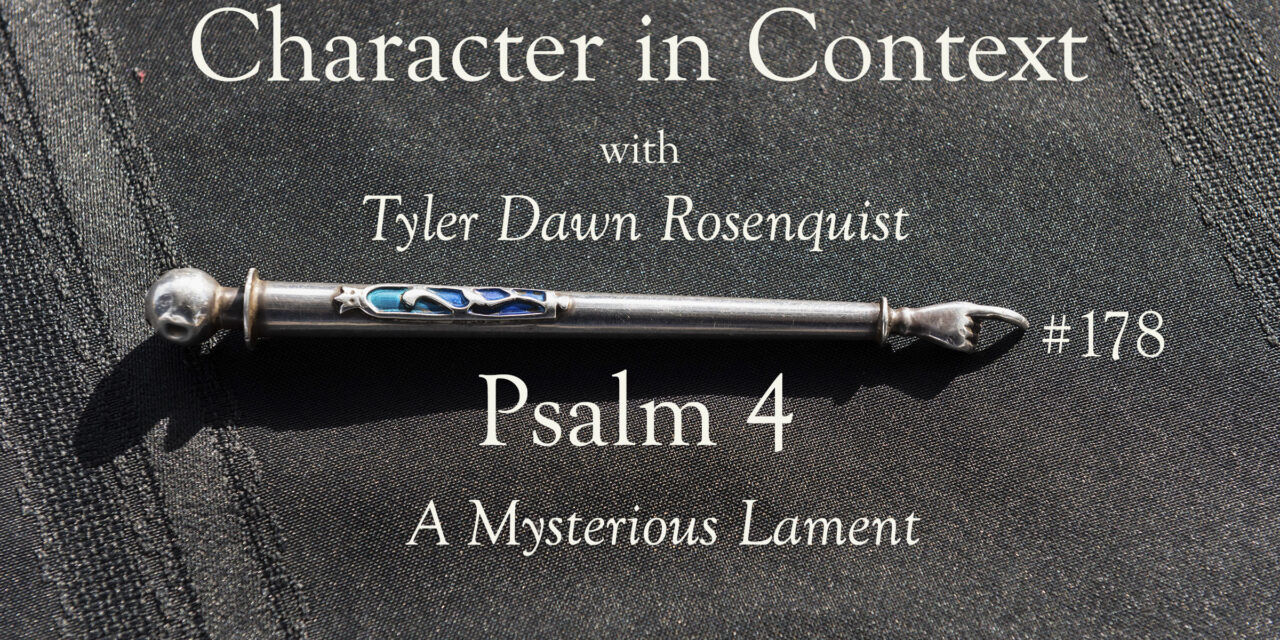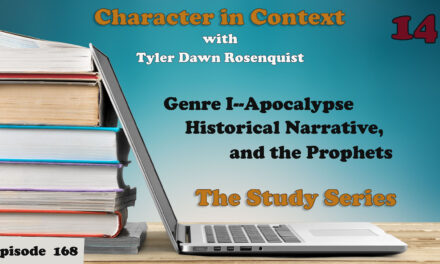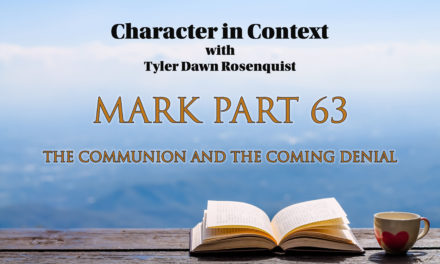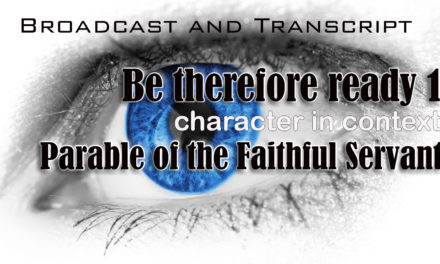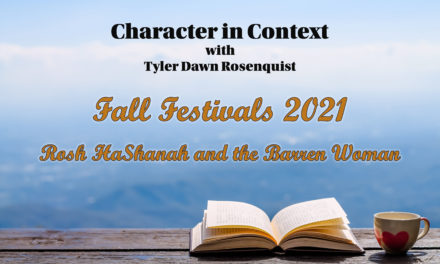There is so much debate about this Psalm. Not only does it contain two words that we don’t know what the heck they mean, but the context is quite the mystery. Is the Psalmist (David?) being lied about? Are the Kingdom elites resorting to Ba’al worship in order to bring an end to a famine? Is this Psalm 3 part 2 where David’s advisors are defecting to Absalom? Lots of questions and lots of debate.
(My affiliate links for Amazon products are included in the post. As an Amazon Associate, I earn from qualifying purchases.)
If you prefer a longer video version, click here. If your email doesn’t show the podcast player, you can click here.
Psalm 4 seems simple and straightforward enough, right? Nope. Oh, my goodness, there are so many different puzzles here, and so there are also a few plausible interpretations of what was going on here and why. Remember back when I told you that one of the best things about the Psalms is how purposefully vague they are? People can read themselves and their own situations into the Psalms and pray them as though they wrote them themselves. When we are facing crises and hardship, are being attacked, betrayed, lied about, or if we are just doubting God’s faithfulness, we can go to the Psalms and find one that fits our prayer needs. And that’s awesome but it is also problematic when we are trying to study and mine them for context to get the most out of our theological studies. Psalm 4, unlike Psalm 3, gives us no clear leading as to what the problem is, who the specific enemies are, and we definitely don’t know the final outcome of the crisis. Was this written during a famine, when there was no rain and David’s own councilors are turning on him? Some scholars can give a really good argument for it. Is it Psalm 3 part two and David is dealing with the split in loyalties among the wealthy? Maybe, we’ll talk about that too. Is David dealing with false accusations? That’s possible too! How much does it really matter when we apply it to our own lives and pray it for ourselves?
Hi, I am Tyler Dawn Rosenquist, and welcome to Character in Context, where I teach the historical and ancient sociological context of Scripture with an eye to developing the character of the Messiah. If you prefer written material, I have years’ worth of blogs at theancientbridge.com as well as my six books available on Amazon—including a four-volume curriculum series dedicated to teaching Scriptural context in a way that even kids can understand it, called Context for Kids (affiliate link). I also have two video channels on YouTube with free Bible teachings for adults and kids. You can find the links for those on my website. Past broadcasts of this program can be found at characterincontext.podbean.com, and transcripts for most broadcasts at theancientbridge.com. If you have kids, I also have a weekly broadcast where I teach them Bible context in a way that shows them why they can trust God and how He wants to have a relationship with them through the Messiah.
As we did last week, the Psalm itself will be read initially from Robert Alter’s excellent The Book of Psalms: A Translation with Commentary (affiliate link). After that, I will pull all Scripture from the Christian Standard Bible (CSB). Remember that Alter loves to capture more of the sound and the brevity of the Psalms in Hebrew, which is always like a third of the words we use in English to try to say the same thing.
For the lead player, with stringed instruments, a David psalm. When I call out, answer me, my righteous God. In the straits, You set me free. Have mercy upon me and hear my prayer. Sons of man, how long will My glory be shamed? You love vain things and seek out lies. selah But know that the LORD set apart His faithful. The LORD will hear when I call to Him. Quake, and do not offend. Speak in your hearts on your beds, and be still. selah Offer righteous sacrifices and trust in the LORD. Many say, “Who will show us good things?” Lift up the light of Your face to us, LORD. You put joy in my heart, from the time their grain and their drink did abound. In peace, all whole, let me lie down and sleep. For You, LORD, alone, do set me down safely.
First of all, we have to take care of the basic housework. There are two words in this Psalm that we don’t know the meaning of. The Psalms have more of those words than any other book of the Bible, by far. The first Hebrew word is menatseach, which Alter translates as the lead player and other translators call the choir director. In the Septuagint, the authorized Greek translation of the Hebrew Scriptures in the second/third centuries BCE, this first line reads “for the end” most likely because the last line makes it clear that this was an evening prayer. Honestly, it makes no difference to us because we don’t know the tune anymore and we can pray it whenever we want, right? Don’t tell me when I can and can’t pray Psalm 4. The second unknown word is selah, which is why it isn’t translated into any English word. We just don’t know what it means at all. Probably a musical term. In the Septuagint, they translated it diapsalma which is a combination of the word psalma (meaning psalm, it’s where we get our English word) and the prefix dia, which can mean quite a few things. A mystery word translated into another mystery word and then just transliterated into English back to selah so it would at least sound the same. Hebrew isn’t a dead language anymore because people speak a modern version of it but for all intents and purposes, a lot of the words are deader than a doornail because we have no clue what they mean. By the time the Temple was rebuilt after the exile, all of the singers of the House of the Lord had been dead for a long time. Musical notations would have been one of the first things to be lost.
Let’s look at this Psalm verse by verse in the CSB:
Answer me when I call, God, who vindicates me. You freed me from affliction; be gracious to me and hear my prayer.
We can tell right away that this is a lament Psalm. The writer is using phrases like, “Answer me when I call” and reminding God of past acts of deliverance. The author, whether it is David or someone writing for David or in the style of David or about David, is communicating the existence of a covenant relationship where God can be called upon and be expected to listen, and who has a history with the writer. We see three supplications here; supplications are cries for aid and action from either God or someone else who has the capacity to help. They are cries to answer, to give relief from suffering, and to hear. The author desires vindication of either their faith in Yahweh or because they have somehow been wronged. It isn’t entirely clear, as we will see. Despite their covenant relationship where Yahweh has sworn to be faithful and to protect His people and specifically His anointed king from enemies, they still recognize that it is their duty to take their petitions specifically to Yahweh and not to other gods or foreign armies—of course, this is a problem throughout the history of the divided Kingdoms of Judah and Israel. But this was penned during the reign of David, before the split. Despite David’s sins, we don’t ever see him crying out to anyone except Yahweh for help. Yahweh is the true vindicator and Savior. This is a common thread throughout the Davidic Psalms. The author talks about a prayer to be heard but what prayer is this? We aren’t specifically told.
How long, exalted ones, will my honor be insulted? How long will you love what is worthless and pursue a lie? Selah
Another common phrase in laments is “how long?” It is a cry of frustration. Despite seeming to be directed at the b’nei ish, literally the sons/daughters of man, it is actually a crying out to God to do something about the undefined actions of those who are wealthy and powerful. When the various Psalmists want to talk about the poor and lowly, they will use the idiom b’nei adam, sons/daughters of adam/humankind. Despite sounding like they should mean the same thing, they don’t. They are polar opposites. There are some different ideas about how this verse should be translated—is the psalmist’s reputation being slandered or is God Himself being somehow dishonored? The Hebrew word translated as honor is kavod, which can mean glory. Is the object of scorn the author’s personal honor or the author’s God? Poetry is notoriously difficult to translate, or to even understand completely in the original language—even when the author is alive to explain it! In this case, powerful people are loving what is “worthless” and pursuing a “lie.” Are they worshiping false gods and going after them? That’s certainly a common theme throughout Scripture. Are they slandering the author with a lie? Have his councilors and “men of rank” defected to Absalom’s army? All these are plausible.
Know that the Lord has set apart the faithful for himself; the Lord will hear when I call to him.
Whoever the enemy is and whatever it is they are doing, the author has finished their complaint and is now directly addressing and instructing them, seven times. At this point, the Psalm shifts to an expression of confidence and instruction in wisdom. The author will be vindicated and the Lord will make things right for those who follow and obey Him. So these children of men are advised to know, yada, Yahweh and to understand that Yahweh is faithful to those who love Him. The wording on this is a bit confusing and could mean that Yahweh works miracles for the faithful or that He sets them apart in His safekeeping but the uptake on it, either way, is that the author is warning them that they have the ear and attention of Yahweh and so these adversaries had better be careful in what they are doing—they shouldn’t believe they can get away with whatever it is forever. If they desire to remain “men of rank” then they need to be wise.
Be angry and do not sin; reflect in your heart while on your bed and be silent. Selah
Again, this is hard to translate because rigzu means to tremble or to quake with fear or awe. But when it was translated into the Greek in the Septuagint, they used a word meaning anger and that’s what Paul quoted from in Ephesians 4:26. But the context for Paul is different—that being said, it is the most Jewish thing in the world to take a verse that means one thing and tweak it a little or a lot to make a different point. We will see this quite a bit when we get to the Gospel of Matthew. If you have read any of the Talmud, you already know this is true. They didn’t play by our rules, and God was speaking to and through them and not us! So He wouldn’t follow our rules of what makes for legitimate Bible interpretation or history or science or any of that. I believe that the original meaning really was something along the lines of “shake in your boots and stop sinning.” You know, like a “fear God and repent” sort of thing. The phrase “reflect in your heart” is our translation of a Hebrew idiom meaning “to think” because remember they believed that the brain was kinda useless and that thinking, reasoning and feeling happed in the heart, kidneys, and bowels because of how those felt when they experienced strong emotion. I like to translate this whole verse as, “Fear God and stop sinning. Think about what you are doing and shut up.” And of course, that’s always good advice for us all when we get uppity or even every day. Four more instructions—fear Him, do not sin, think, and shut up. Although that last word might also be translated as weep, which is what we should do when we start thinking about the nonsense we have been up to.
Offer sacrifices in righteousness and trust in the Lord.
Now, here is where the theory that this is just David being upset at his advisors for siding with Absalom really begins to break down. Something is wrong with their sacrifices or how they are offering them or maybe what gods they are offering them to. Certainly Yeshua/Jesus told people that if you had done something to hurt another person, God wouldn’t accept an offering until you made things right with the person you hurt. There is no such thing as a private sin when it involves other people. So they are commanded to offer sacrifices, but they have to be righteous offerings (which means with right heart motivations, after performing just acts to make up for what they have done wrong if possible) and those offerings must be offered to and only to Yahweh. If these sacrifices represent petitions in a time of crisis, then Yahweh is the only one they should be going to, but we will discuss that later. The last two instructions to the elites are to offer appropriate sacrifices and to trust Yahweh.
Many are asking, “Who can show us anything good?” Let the light of your face shine on us, Lord.
The author turns their attention to Yahweh again in complaint and petition. The “many” or rabbim (a common theme in laments, the prophets, and the Gospels) are crying out in complaint but not to God. They are crying out to anyone who will listen—perhaps hoping to catch the ear of another god in the area. Something must be desperately wrong. Either the author is being blamed for bad circumstances or the “men of rank” have lost faith in Yahweh and are turning to other gods. Presumably, one way or another, David is being cast aside as being unable to lead them through this crisis—perhaps they believe that David is to blame for the crisis. Is God angry at David? Is rain being withheld? If so, then the elites would certainly be wondering if another king or another god is needed to bring back prosperity. The people, for one reason or another, are not flourishing and prospering. We see in 2 Sam 21 that the land experienced famine for three years because of a sin Saul committed against the Gibeonites, their covenant partners from the time of Joshua and Caleb. But then we have the question of, “if this is about a recorded historical event, then why no title on this one when the last one has a title?” Whatever the case is, whether the elites are trying to get rid of David for one reason or another or trying to get rid of Yahweh worship in favor of other gods—the challenge is clear, “Show me the money!” That’s the sense of “who can show us anything good?” Good hearkens back to the days of Creation where God provided every need for the people whom He created.
The Psalmist responds with a key quotation from the Aaronic blessing which we find in Num 6:24-26: “May the Lord bless you and protect you; may the Lord make his face shine on you and be gracious to you; may the Lord look with favor on you and give you peace.”’ The author is appealing to the blessing in whole by using a part of it, something very common in the Bible and other Jewish writings. The formal term for that is synecdoche (sinekdeckey). We do this too in our culture in various ways. It’s why we say Coke or Kleenex when what we mean is soda and tissues in general. In this case, a phrase from the Aaronic blessing is supposed to remind us of the entire thing. In the Bible, we could use “Come out of her my people!” as a great example of why we need to know the whole Bible. That phrase is telling us to go to Jeremiah 51 so we can see what the Roman Empire has in common with ancient Babylon—wealth, oppression, military violence, and idolatry—and why the believers in Yeshua need to separate themselves from serving the wrong Empire. When we read it out of context, people start picking on Catholics.
You have put more joy in my heart than they have when their grain and new wine abound.
Now the author expresses confidence in the Lord despite outward appearances and circumstances. After asking for the promises implied in the Aaronic blessing to those who put their trust in Yahweh, the psalmist tells Yahweh that no matter what the elites take pleasure in, he or she takes joy in Yahweh. Interesting little note here—the Hebrew word for grain here is dagan and of course, the Philistine god Dagon is the grain god of the Philistines. There might be a play on words here if there is indeed a famine going on. They are focused on grain and perhaps appealing to the god who is regionally thought to be able to bless that harvest. They seem to be crying out in the wrong way to the wrong god for what only Yahweh can give them. But Yahweh always knows that the people need Him more than they need grain and wine. People with grain and wine, according to Moses, get fat, happy and contemptuous of the idea that they owe it all to Yahweh and must worship Him and follow His ways. Are the elites crying out to Dagon? Are they crying out against David because they want a different king who can provide the results they desire? Is it David’s faith in God that requires vindication? Some scholars think so. It’s certainly an interesting idea and definitely not out of character for the ancient Israelites and their fickle loyalties. But then, we are much the same, right? Heck, we complain about persecution over getting unfriended on social media when people get tired of our abusive behavior—oops—I mean, they can’t handle the truthful truthiness of our truth. It helps if truth is in all caps. It’s more true that way.
I will both lie down and sleep in peace, for you alone, Lord, make me live in safety.
I had mentioned before that in the Septuagint, the title is translated “for the end” instead of “by the choir director.” This verse is why they made that decision. The psalmist, after crying out to God, complaining way too vaguely for us to know for sure what the heck is going on, rebuking and instructing the Kingdom elites who have somehow gone astray, and petitioning God for favor and prosperity before finally telling God that He is enough even if everything is going wrong otherwise—well, we see that the psalmist is now so at peace that they will not only lie down in their bed but will also sleep in peace. Only the Lord can bring security and safety. There is no need to appeal to other gods. Being able to sleep in the midst of conflict and uncertainty is like the ultimate expression of faith and confidence. We also saw this same vote of confidence in Yahweh to deliver in Psalm 3 where David specifically said that despite the rebellion of his son Absalom against him, he is able to sleep and to wake back up again because Yahweh keeps him alive. Just as David didn’t kill the sleeping Saul who was trying to hunt him down and kill him, so David knows that the Lord will protect him from his enemies as well. We see this idea elsewhere in the Psalms and Proverbs that the wicked never sleep, but it’s okay because neither does Yahweh.
Okay, so we’re going to take a four week break from the Psalms–next week I will be giving another one of my scathing Yom Kippur presentations–and then we will start talking about the themes and common expressions in the Gospel of Matthew. If you remember, before starting Mark, we had to talk about the Greater Exodus, what the Gospel is, and why Yeshua used the expression Son of God to identify His ministry instead of the more common term Messiah. We need to talk about the “greater than” statements that Yeshua made about Himself, and in particular Yeshua as the Greater Moses and as Israel’s definitive wisdom teacher and God’s final word on His will. The Kingdom of Heaven as a concept and a reality is supremely important in everything Yeshua preaches and does. The core focus in Mark wasn’t on His teachings but on His works as the Yahweh-Warrior/Arm of the Lord prophesied by Isaiah where He was dismantling the kingdom of the Beast. With Matthew, the miracles take a real backseat to His teachings. Each of the four Gospels has a different purpose in teaching about Yeshua. Mark was written for a more mixed audience but Matthew was written for the predominantly Jewish believers in Christ and probably late first century, whereas Mark was likely the first written. Oh, and we also need to talk about ancient biographies because they don’t follow our modern rules at all.
So, I am excited and I hope you are too!

